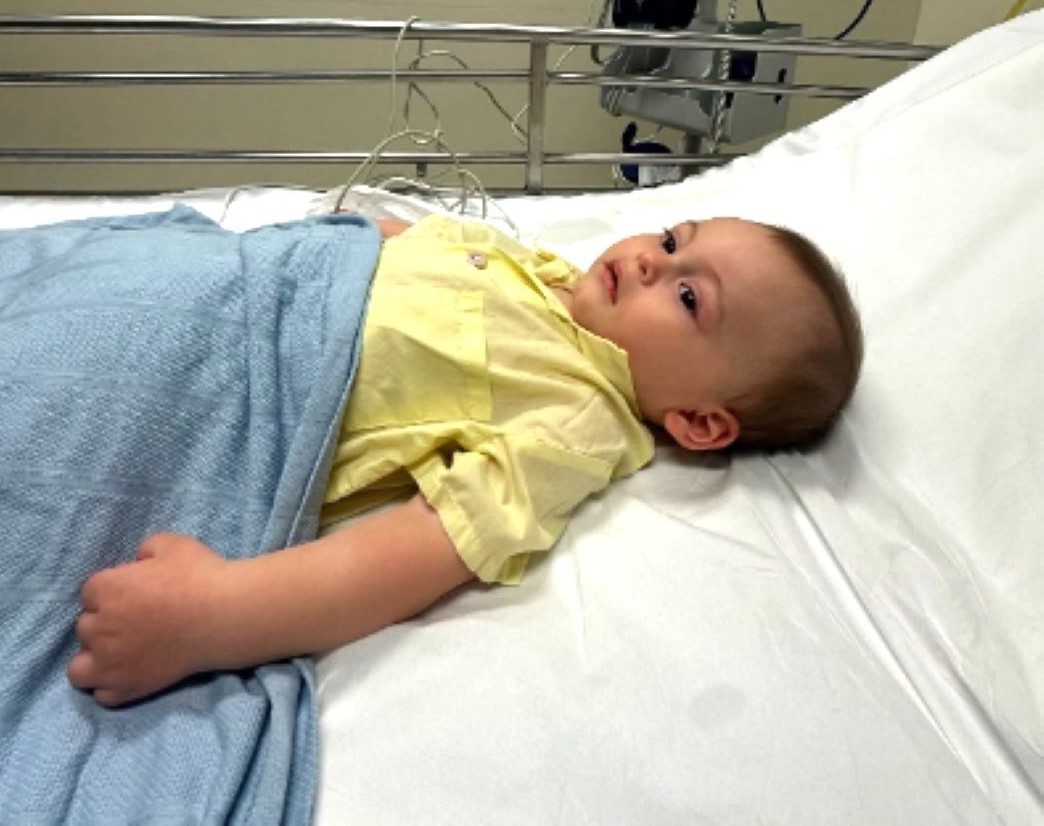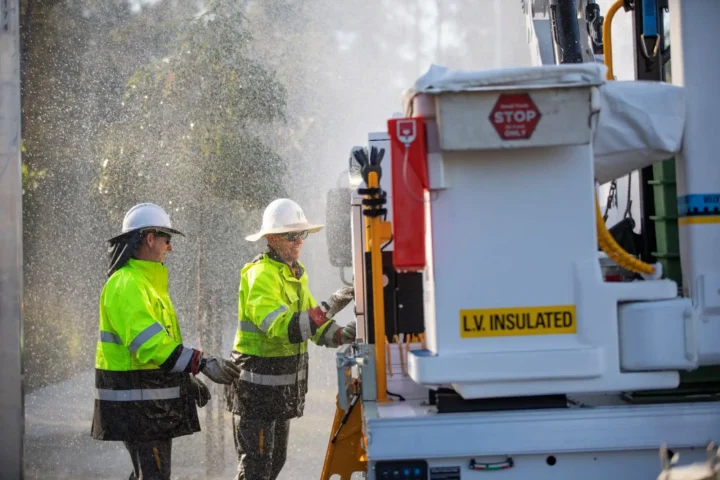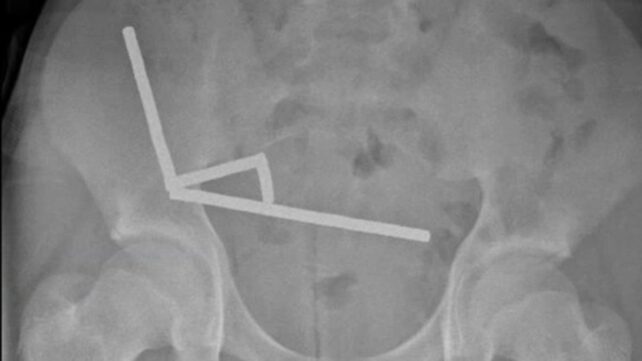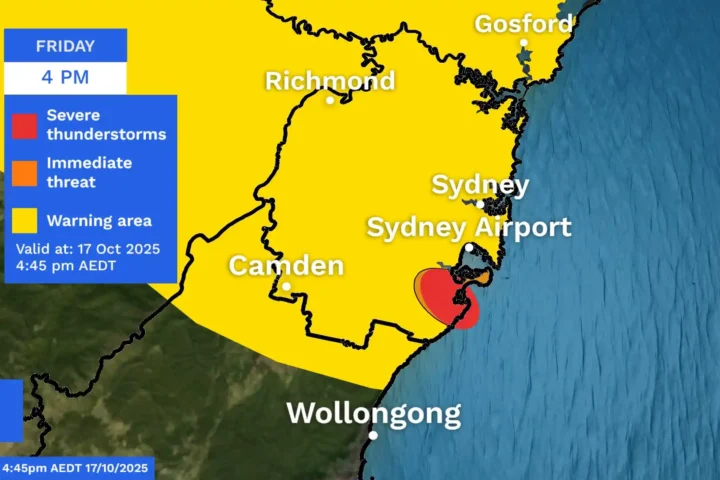Nine-month-old Obi was acting strange. His mom, former Miss Universe Australia Erin McNaught, watched her happy baby change over just a few weeks. He stopped eating well. Sleep became difficult. Then came the scariest sign – Obi couldn’t hold his head straight anymore.
These warning signs sent McNaught and her partner Stace Cadet straight to the doctor. An MRI scan revealed what no parent wants to hear. Their baby had a large tumor growing in his brain.
The news came Tuesday evening when a brain surgeon sat down with the terrified parents. McNaught later shared that they felt completely broken by what they learned.
When Parents Know Something’s Wrong
Brain tumors in babies don’t always show obvious signs at first. Parents often notice their child acting differently before anything else. Eating problems can happen when tumors create pressure inside the skull.
Sleep troubles follow for many children. The growing mass makes rest uncomfortable or impossible for little ones.
Head position problems like Obi experienced signal serious concern. When babies can’t control their neck muscles properly, something is affecting their brain’s ability to control movement.
These changes can happen over weeks, just like what McNaught and Stace witnessed. Parents might initially think their child has a stomach bug or is going through a rough patch. The difference is that brain tumor symptoms keep getting worse.
What Doctors Do Next
Medical teams first need to understand exactly what type of tumor they’re treating. The Queensland Children’s Hospital staff are now working with Obi’s family to determine the best approach for his specific situation.
Brain tumors in babies require careful evaluation because young brains are still growing and developing. Doctors consider many factors when planning treatment, including the tumor’s size, location, and characteristics.
Similar Posts
Each case gets individual attention. What works for one child might not be right for another, so medical teams create specific plans for each family.
The Emotional Journey
McNaught and Stace described these as their hardest days. They’re working through feelings that no parent should face while trying to stay strong for their baby.
The couple praised their medical team for being incredible during this crisis. Having good doctors makes an enormous difference when families face scary medical situations.
Community Steps Up
McNaught’s announcement brought messages from everywhere. Her ex-husband wrote support on social media. Tennis star Dylan Alcott promised that Obi would fight like his parents do.
Fellow celebrities and regular people flooded their social media with love and encouragement. This kind of community support helps families feel less alone during medical crises.
Organizations across Australia help families dealing with childhood medical challenges. About 120 Australian children receive brain tumor diagnoses each year, so support systems exist to help parents navigate these difficult times.
Hope Remains Strong
Despite their fear and exhaustion, McNaught and Stace are holding onto hope. Their medical team believes they can remove the tumor and help Obi get back to being a healthy, happy baby.
The family knows they have a long road ahead. Treatment for brain tumors takes time and patience. But they’re focusing on getting their little boy better, surrounded by family, friends, and an experienced medical team.

McNaught had shared joy about Obi’s birth just months ago. Partner Stace had talked about being so in love with their new baby that they couldn’t take their eyes off him. Now they’re fighting for his health while holding onto that same love that brought them through his first months of life.
Their story reminds us how quickly life can change and how precious every moment with our children really is.
Frequently Asked Questions
Early warning signs include persistent eating problems, severe sleep disturbances, and difficulty controlling head movements. Babies may also show unusual behavior changes, excessive crying, or problems with basic functions like swallowing. If your baby cannot hold their head straight or shows a rapid decline in normal behaviors, seek medical attention immediately.
Approximately 120 Australian children receive brain tumor diagnoses each year. While brain tumors in babies are relatively rare, they remain the leading cause of cancer-related death in children. Early detection and proper medical care are crucial for the best possible outcomes.
Doctors first conduct detailed scans to understand the tumor’s type, size, and location. Treatment plans are created specifically for each child’s situation. Surgery is often the first step if doctors believe they can safely remove the tumor. The medical team considers the baby’s developing brain when planning treatments.
Erin McNaught is a former Miss Universe Australia, model, and television personality. Her decision to publicly share her 9-month-old son Obi’s brain tumor diagnosis helps raise awareness about childhood brain cancer and shows other families they are not alone in facing such medical challenges.
Organizations like Redkite in Australia provide financial assistance, emotional support, and practical resources for families. Hospitals often have specialized teams including social workers, child life specialists, and support groups. Many communities also rally around families during medical crises to provide help and encouragement.
Seek immediate medical help if your baby shows a combination of symptoms like persistent feeding difficulties, severe sleep problems, inability to control head movements, or rapid behavioral changes that worsen over time. Trust your parental instincts – if something feels seriously wrong, contact your doctor or visit an emergency room.

















